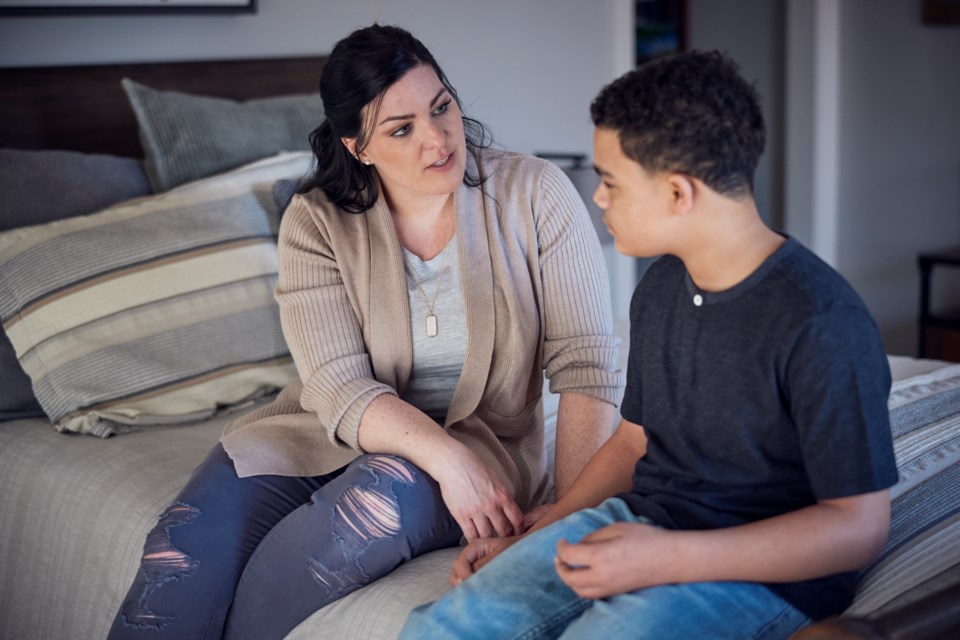Dear Lisi: My teenage daughter seems to think I was created for her. I’m trying to teach her otherwise, but clearly failing. I’ve stopped making her breakfast in the morning, in hopes that she’ll wake up and make her own. Instead, she skips the meal altogether.
I stopped making her lunches for school, again hoping she would take some initiative. Instead, I got calls from the principal that she was either late for her class after lunch because she had gone out, or she’s falling asleep because she hasn’t eaten anything all day.
Her school is on the way to my office, and very tricky to get to by public transportation, so as often as I can, I drive her. But when I can’t, she acts like I’m doing her a disservice.
How do I get her to realize that at 16 she should be able to do a lot more on her own?
Dependent Dependant
First of all, know that you are not alone in this predicament. It’s a very tricky shift and one that many parents find hard to do smoothly. In fact, recently I have heard from many on this same topic. And I strongly believe COVID-19 exacerbated the issue.
I remember my teenage years and the organic progression from being driven to school in Grade 8, to walking to high school, for example. As a kid, I didn’t have much say about what my mom made me for lunch. As a teen, I was very picky, so I started to make my own lunches. But it just happened smoothly.
Two years of being at home, of being able to grab a snack from the fridge any time of day, even in the middle of class (since class was online) has confused many kids, among many other “symptoms” of the pandemic. Their maturation has been stilted.
Talk to your daughter gently. Maybe she’s embarrassed to say she doesn’t know how to make her own breakfast and lunch. Offer to help her and make her lunch together. Get her input on what she would like and then stock your fridge and pantry.
Remember, some kids can’t wait to grow up; others aren’t in a rush. I can relate.
FEEDBACK regarding the man marrying for the second time and concerned about finances (Nov. 22):
Reader – “If he wants to marry ‘the love of his life’ he does indeed have to accept all the legal consequences of his home state or province, as does his wife-to-be. But that should extend only to an equitable sharing of their incomes and any assets and debts acquired with that income during the marriage should the marriage fail.
“In Canada, 60 per cent of second marriages end in divorce. Therefore, they both need to ensure that sharing of any part of either’s business is off the table. This is particularly important for him since three other owners would be disadvantaged. Pre-nuptial contracts are common in such situations, i.e., where one marital partner comes with an established business, and where there are other business partners. Not having such a contract would be irresponsible. And as the fiancée has her own business, she should understand this and should have a similar agreement with respect to that business.
“As to his being obliged to ‘always take care’ of his brothers’ wives, that’s ridiculous. They are adults with husbands who have shares in this business. Regardless of the father’s wishes, he owes these wives no more than all family members owe one another: help if it is needed, merited and within one’s ability to provide.”
Dear Lisi: I was born and raised in a country where men walked hand in hand with each other, as friends. We never grew up thinking about whether they were together as a couple. Women as well.
Now I look back and wonder.
I now live in Canada where people are freer with their sexuality. When I see two young girls walking down the street holding hands, I think they are just friends. But when I see two men, I think they are definitely a couple.
How do you know?
Confused Foreigner
The truth is, you, the unknown observer, don’t know. But it’s actually none of your business. I don’t say this to be rude, rather to remind people that how others conduct themselves, who they love, what they wear is up to their own discretion and not for us to judge. Thank goodness we live in a country where we can be who we choose.
Ellie Tesher and Lisi Tesher are advice columnists for the Star and based in Toronto. Send your relationship questions via email: [email protected].



